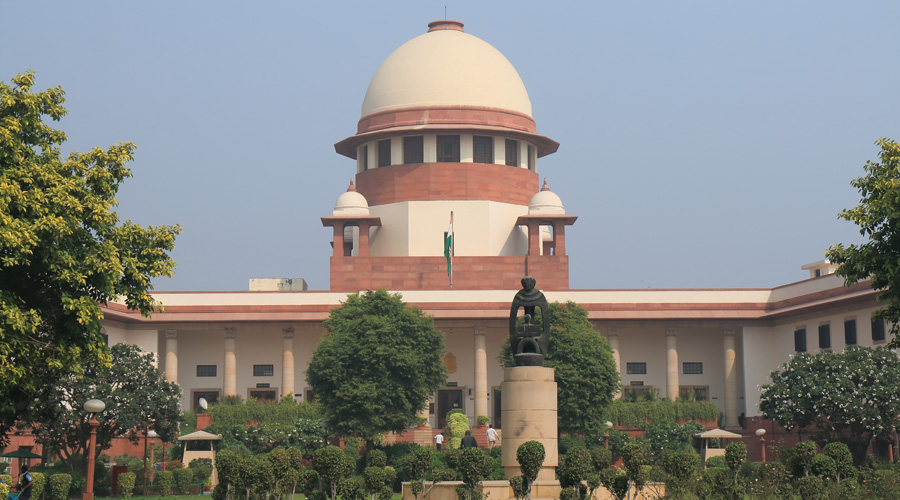The Supreme Court on Tuesday ordered the release of Leichombam Erendro, a Manipur-based political activist arrested for sedition in May over some Facebook posts, saying the detention was amounting to violation of right to life and personal liberty.
The 37-year-old was arrested under the National Security Act, guilty of saying "cow dung and cow urine don't work."
While Solicitor General Tushar Mehta sought time and wanted the case to be adjourned till tomorrow, the judges ordered his immediate release, according to NDTV.com.
"We are of the view that the continued detention of the petitioner would amount to violation of right to life and personal liberty under Article 21. We direct him to be released today by 5 pm with a personal bond of Rs. 1,000," a two-judge bench of Justices DY Chandrachud and MR Shah said.
The order came on a plea by Mr Erendro's father.
The activist, along with journalist Kishorechandra Wangkhem, were arrested for posting the comment over the death of Saikhom Tikendra Singh, the then state BJP President. Manipur BJP Vice-President Usham Deban and General Secretary P Premananda Meetei had filed a complaint against them saying their posts were offensive.
Earlier, in June 2020, Erendro was charged with sedition by the state police over another Facebook post that had the photo of Rajya Sabha MP Sanajaoba Leishemba with Union Home Minister Amit Shah. The photo, captioned Minai macha, showed Manipur's titular king bowing with folded hands before the senior BJP leader.
Roughly translated from Meitei, Manipur's native language, Minai macha means "son of a servant".
Erendro was released later on bail in this case.
The Supreme Court had last week questioned if the sedition law was "still necessary after 75 years of Independence". The law is a serious threat to the functioning of institutions and holds "enormous power" for misuse with no accountability for the executive, the court had said, comparing it to a saw in the hands of an overzealous carpenter.
During the argument, the court said there was "minimal conviction or very low rate of conviction" in the history of the sedition law.










